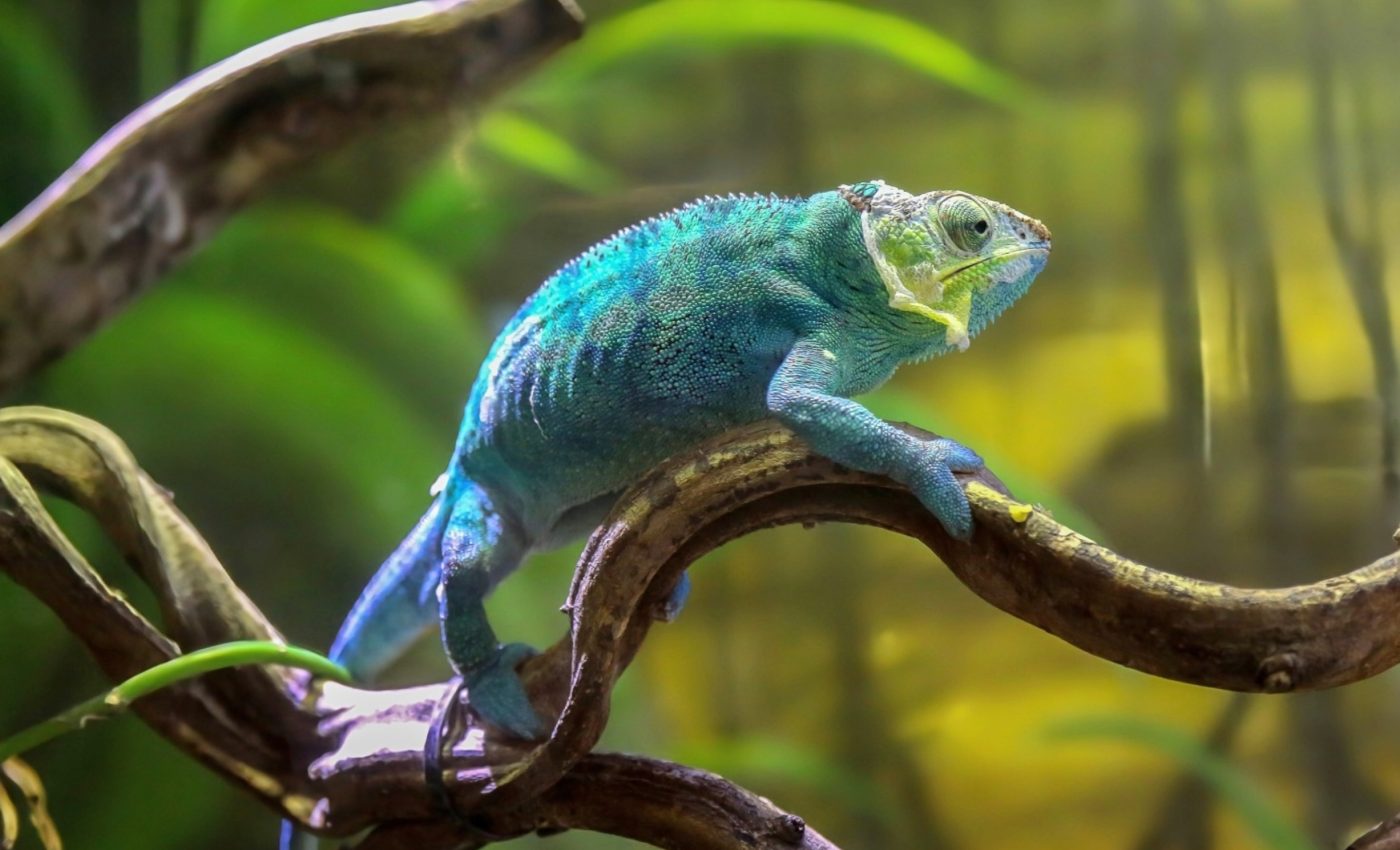
World Lizard Day 2024: Celebrating our scaly companions
World Lizard Day is celebrated each year on August 14. While this day may not be very well-known, it is nevertheless celebrated on local levels in schools or parks by a variety of reptile enthusiasts who increasingly use the internet to spread information about lizards.
Since World Lizard Day has not yet been adopted by higher-level conservation organizations like the World Wildlife Fund, it is primarily focused on awareness about reptiles as pets.
Unique biology of reptiles
All reptiles, including snakes, lizards, crocodiles, or tortoises, are air-breathing vertebrates covered in scales, plates of bone, or a combination of both. These animals shed their skin and are ectothermic, depending on the surrounding environment to regulate their body temperatures.
This reliance on external factors for regulating their core body temperatures means that reptiles are forced to find sun or shade to warm up or cool down. Thus, in regions with colder winters, reptiles usually experience a period of inactivity until the weather becomes warmer again.
Properly caring for lizards
Lizards are no different, which is why they can frequently be found sunning themselves in warm gardens or on the bricks exposed to the sun throughout the day.
However, in order for pet lizards to remain warm or cool, owners may need to heat their tanks with heating lamps or pads, while paying attention not to overheat them. Thus, preparing and maintaining a tank for a lizard (or, in fact, any other reptile) requires continuous efforts.
Since each subspecies of reptile has its specific needs and preferences, it is recommended that reptile owners conduct research to understand exactly what their pets need to remain healthy.
Before buying or adopting a pet lizard, research will help you figure out what kind of lizard would suit your lifestyle and budget constraints, and is crucial in ensuring that you make the right choice.
Fascinating facts about lizards
The incredible variety of lizard species – including a vast range of sizes and colors – showcases the diversity of life on Earth. Lizards are fascinating creatures with several unique characteristics.
Regeneration
Many lizards have the remarkable ability to regenerate lost body parts, particularly their tails. If a lizard is caught by a predator, it can detach its tail, which continues to move, distracting the predator and allowing the lizard to escape. Over time, the tail can regrow.
Diverse adaptations
Lizards are highly adaptable and can be found in a wide range of environments, from deserts to forests. Some, like the gecko, have specialized toe pads that allow them to climb smooth surfaces, while others, like the chameleon, have long, sticky tongues for catching prey.
Color change
Chameleons are particularly well-known for their ability to change color. This ability is used for communication, temperature regulation, and camouflage.
Parthenogenesis
Some species of lizards can reproduce through parthenogenesis, a form of asexual reproduction where an egg can develop into an offspring without fertilization by a male. This is particularly seen in some species of whiptail lizards.
Sensory abilities
Lizards have acute senses that aid in survival. For example, many species have excellent vision, some even possessing the ability to see ultraviolet light. They also have a well-developed sense of smell and can detect chemicals in the environment through their tongues.
Diverse diet
Lizards have a wide range of dietary habits. Some are insectivores, feeding on insects, while others are herbivores, carnivores, or omnivores. This dietary diversity allows them to occupy various ecological niches.
World Lizard Day activities
Visit a local reptile park or sanctuary
If you want to celebrate World Lizard Day, but don’t have any reptiles of your own, you could visit and support the local reptile park or farm.
There will most likely be an interesting and educational event being held, and you would have the chance to support a local business.
Donate to conservation efforts
Non-governmental organizations and institutions such as the World Wildlife Fund are making crucial efforts to rescue and conserve animals and their habitats, so a donation to such organizations could help the survival of lizards, which are currently endangered.
However, if you would prefer seeing your money work on a smaller scale, you could find out if your local shelter or park has any lizards that you can sponsor.
Educate yourself and others
Use World Lizard Day as an opportunity to learn more about lizards and the challenges they face. Share what you’ve learned with friends, family, or on social media to help raise awareness. The more people know about the importance of lizards, the more likely they are to support conservation efforts.
Create a lizard-friendly environment
If you have a garden, you can make it a haven for local lizards. Provide rocks, logs, and native plants to create shelter and basking spots. Avoid using pesticides, as these can harm lizards and their food sources.
Consider a pet lizard
If you’re thinking about getting a pet lizard, do your research first. Make sure you understand the species’ specific needs and are prepared to provide the care it requires.
Responsible pet ownership includes knowing where your lizard comes from and ensuring it was not taken from the wild illegally.
Celebrate World Lizard Day
World Lizard Day 2024 is more than just a day to celebrate these fascinating creatures; it’s a reminder of the importance of conservation and our role in protecting the natural world.
Whether through education, conservation, or simply appreciating the lizards in your garden, everyone can contribute to ensuring that these remarkable animals continue to thrive. So, mark your calendar for August 14th and take part in the celebration of World Lizard Day!
—–
Like what you read? Subscribe to our newsletter for engaging articles, exclusive content, and the latest updates.
Check us out on EarthSnap, a free app brought to you by Eric Ralls and Earth.com.
—–













